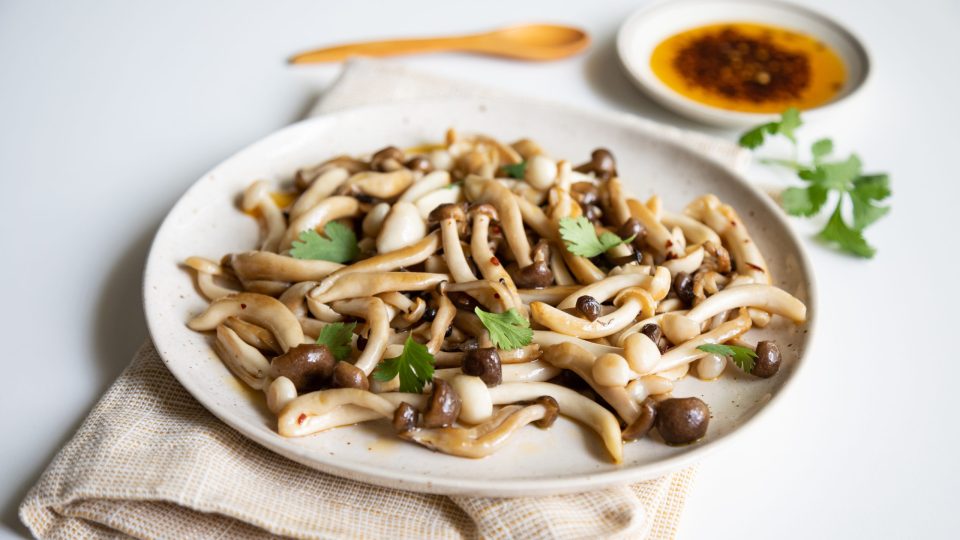Cooking Tips & Ideas, Mushroom 101
Your New Favorite Ingredient To Pickle: Mushrooms
Pickling is more popular than ever, with bold and briny flavors becoming the star of snack plates and charcuterie boards.…

Mushroom 101
Neither. Mushrooms are fungi, which are so distinct in nature they are classified as their own kingdom – separate from plants or animals. While commonly placed in the vegetable category for dietary recommendations, mushrooms are, however, not a vegetable based on their cellular organization and composition such as chitin and ergosterol.
Mushrooms are grown in nearly every state. However, Pennsylvania accounts for approximately 60 percent of total U.S. mushroom production.
The most popular mushroom variety grown in the U.S. is white button, followed by crimini (brown or baby bellas), portabellas, enoki, oyster, maitake and shiitake. Take a deeper drive into mushroom varieties or download our varieties at-a-glance handout.
We specialize in fresh mushrooms grown on farms. There are thousands of species of fungi in the world, but only a few are edible. Take caution when handling wild mushrooms, as they may be poisonous. If you are looking to identify wild mushrooms, it’s best to contact a trained mycologist.
Mushrooms are grown and harvested year-round.
Yes. According to the FDA, you should “wash all produce thoroughly under running water before preparing and/or eating, including produce grown at home or bought from a grocery store or farmers market.”
All mushrooms contain some vitamin D1, but mushrooms have the unique ability to increase vitamin D amounts due to UV-light or sunlight exposure2.
Please see our Varieties and Benefits and Nurients pages for information about individual varieties’ vitamin D content.
Long celebrated as a superfood source of powerful nutrients, fresh mushrooms are a healthy addition to your plate. They are fat free, low calorie, nutrient dense, low in sodium and contain natural antioxidants. For more nutrition information, please visit our Nutrition pages.
1 US Department of Agriculture (USDA), Agricultural Research Service, Nutrient Data Laboratory. USDA National Nutrient Database for Standard Reference, Legacy. Version Current: April 2018. Internet: http://www.ars.usda.gov/nutrientdata
2 Phillips KM, Horst RL, Koszewski NJ, Simon RR (2012) Vitamin D4 in Mushrooms. PLoS ONE 7(8): e40702. doi:10.1371/journal.pone.0040702
Cooking Tips & Ideas, Mushroom 101
Pickling is more popular than ever, with bold and briny flavors becoming the star of snack plates and charcuterie boards.…
Cooking Tips & Ideas, Mushroom 101, The Blend
Saving money and time go hand and hand – especially after the holiday season. And preparing recipes that can be…
Cooking Tips & Ideas, Mushroom 101
The holidays are a time to show off and make everything a little more special, especially recipes. From brunch to…
